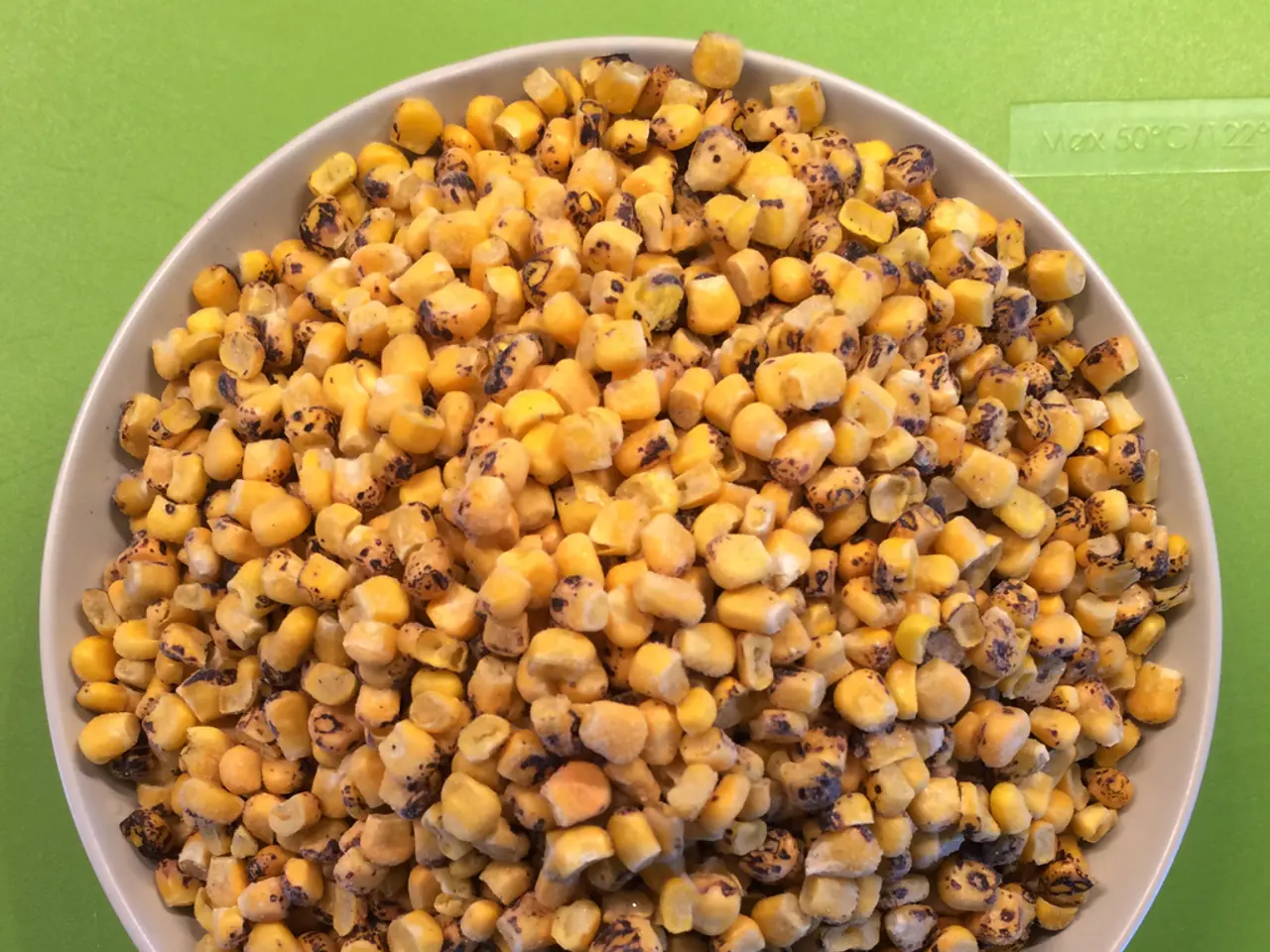AgriNovus CEO explains why he remains optimistic in agbioscience: 'Pessimists may appear knowledgeable, but optimists reap profits'
AgriFoodtech Investment Landscape Shows Resilience and Consolidation
The AgriFoodtech sector has experienced a significant shift in 2022 and beyond, marked by a decline in funding, consolidation efforts, ongoing regulatory progress, and a focus on labor shortage solutions.
Investment Decline
A sharp drop in AgriFoodtech funding was observed in 2022, with investments decreasing by around 44% compared to the previous year. This trend continued in subsequent years, with alternative protein funding halving from $3.2 billion in 2022 to $1.1 billion in 2024. Biostimulants, too, faced an 86% decline in venture capital funding by 2024.
Consolidation Trend
Despite the funding contraction, there has been a rise in mergers, acquisitions, and strategic partnerships. Notable examples include John Deere's acquisition of Smart Apply in 2023 and the predicted consolidation among corporates with cash on their balance sheet. These moves aim to lower operational risks, reduce costs, and facilitate entry into markets regulated by complex rules.
Regulatory Advances
Regulatory progress in alternative proteins is a significant milestone, with several US cultivated meat companies receiving FDA and USDA approval in 2025. This regulatory clarity is seen as a "de-risking" event that could improve investor confidence and catalyze further investment.
Labor Shortage Solutions
While specific labor shortage solutions in AgriFoodtech are not extensively detailed, smart farming technologies—such as IoT-enabled automation, sensors, and precision agriculture—are increasingly being used to improve efficiency and reduce dependence on manual labor. These technology-driven approaches offer promising avenues to address labor shortages.
Regulatory Challenges
AgriFoodtech faces complex regulatory environments that differ by product type. Navigating these rules is costly and time-consuming, but recent approvals signal improving prospects. However, tighter regulations on chemicals in crop protection push innovation towards biologics like biostimulants, which need significant funding to reach their potential.
Looking Ahead
The future outlook of the AgriFoodtech sector hinges on continued regulatory milestones and successful commercial exits to restore investor confidence. Consolidation is likely to continue, helping companies manage regulatory and market risks. Innovations in smart farming stand as a key element in addressing labor shortages and enhancing productivity in the US AgriFood sector.
Key Players and Developments
- Eli Lilly remains the world's most valuable human pharma company.
- John Deere announced three critical innovations around autonomy at CES.
- Returns on many row crops were negative in 2023 and 2024.
- Ingredion committed $100 million to invest in its Indianapolis operation in early February.
- BioBond, a materials science company that makes plant-based adhesives, is another player in the sector.
- Elevance Health (formerly Anthem) is the nation's second-largest health insurer.
- Elanco is the US headquarters of the second-largest independent animal health company in the world.
- Corteva is the largest pure-play Ag company.
- The Indiana University School of Medicine is the nation's largest medical school.
- Solinftec, a Brazilian AgTech company, established its US HQ at Purdue Research Park in West Lafayette in 2019.
- ReproHealth Technologies has developed an innovative form of Assisted Reproductive Technology (ART) for bovine production.
- Gripp, a startup that built an equipment tracking app for farmers and growers, recently announced a $1.5 million pre-seed round of funding.
- Croft Technology, another startup, experienced 2,000% revenue growth over the past 12 months, pitched as a 'digital H-2A farm manager.'
- NanoBio Designs provides rapid, onsite, and cost-effective DNA testing services for seed suppliers and grain distributors.
- Athian is a carbon insetting marketplace for livestock that enables producers to generate carbon credits.
- The HHS secretary, RFK Jr, has a crusade against seed oils that has frustrated some row crop farmers.
- TerraForce, a startup from Indiana, built a robotic harvester that uses AI to identify ripe watermelons and pick them with minimal human oversight.
- Mitch Frazier, speaking about the current challenging environment, predicts consolidation among corporates with cash on their balance sheet.
- The Agbioscience Podcast brings conversations from leaders and innovators across food, animal health, plant science, and AgTech.
- Insignum AgTech uses gene editing to alert farmers to stressors impacting crops.
[1] AgriNovus Insights Report, 2025 [2] AgFunder News, 2025 [3] Agri Investor, 2024 [4] McKinsey & Company, 2023
Despite the decline in AgriFoodtech funding, sports and technology startups, such as Gripp and TerraForce, have managed to secure investments, showcasing that innovation continues in other areas within the AgriFood sector. The consolidation trend, as demonstrated by John Deere's acquisition of Smart Apply, also extends to sports and AgTech companies, aiming to lower operational risks and facilitate entry into specialized markets.






